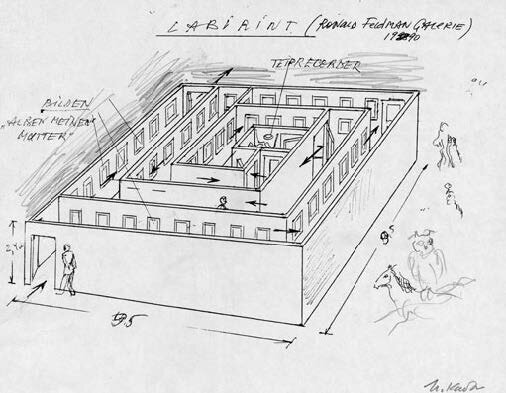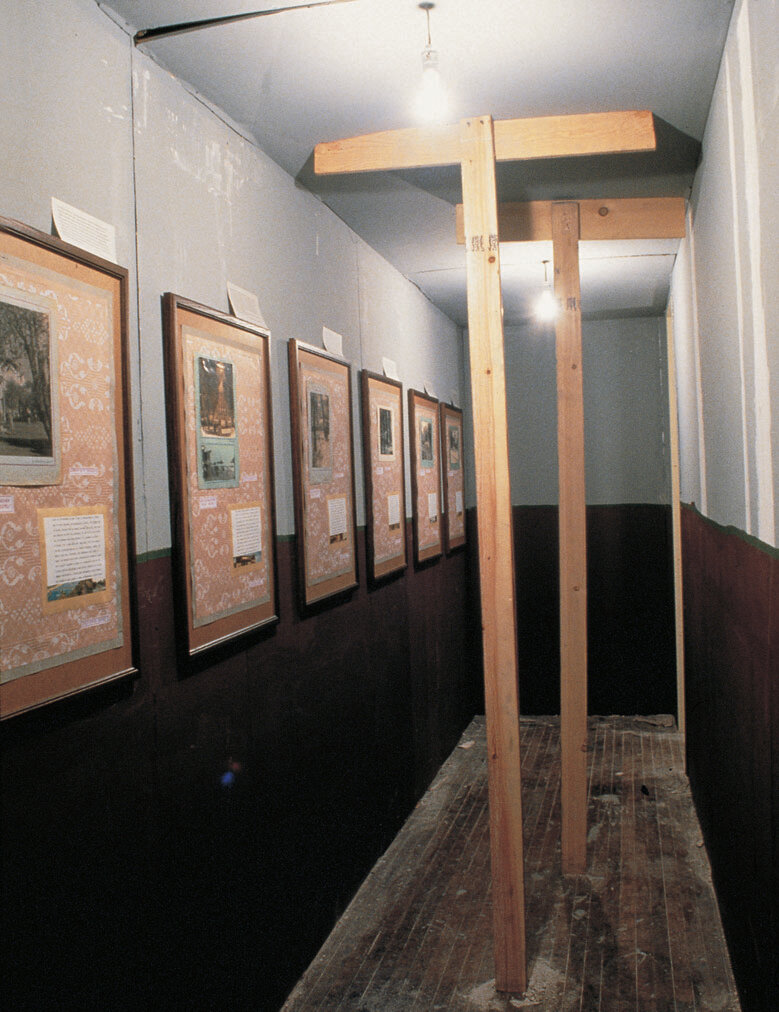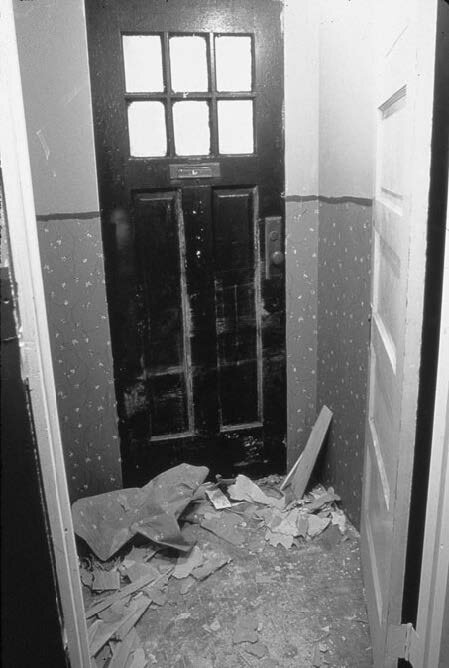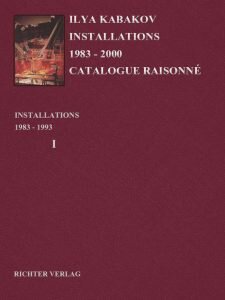Labyrinth. My Mother's Album
YEAR: 1990
CATALOGUE NUMBER: 31
PROVENANCE
The artist
2002, Collection Tate Modern, Gallery of Modern Art, London
NOTES
See No 78
EXHIBITIONS
New York, Ronald Feldman Fine Arts
He Lost His Mind, Undressed, Ran Away Naked 6 Jan 1990 — 3 Feb 1990
Karuizawa, Sezon Museum of Modern Art
Art on Edge 13 Jul 1991 — 6 Oct 1991
Humlebæk, Louisiana Museum of Modern Art
På kanten af kaos – nye billeder af verden/At the Edge of Chaos: New Images of the World 5 Feb 1993 — 9 May 1993
(here entitled Corridor. My Mother’s Life ii, 1992)
Munich, Haus der Kunst
Widerstand: Denkbilder für die Zukunft 10 Dec 1993 — 13 Feb 1994
Grenoble, Le Magasin, Centre national d’art contemporain
Le bateau de ma vie. L’album de ma mère. La rivière souterraine dorée 16 Apr 1994 — 17 Jul 1994
London, Tate Modern, Gallery of Modern Art
12 May 2000
Ilya and Emilia Kabakov, Not Everyone Will Be Taken into the Future, Tate Modern, London, October 18, 2017, to January 28, 2018.
Ilya and Emilia Kabakov, Not Everyone Will Be Taken into the Future, The State Hermitage Museum, St Petersburg and the Tretyakov Gallery, Moscow, in 2018.
DESCRIPTION
The installation is a narrow, poorly lit corridor. It reminds one of a neglected corridor in a communal apartment that hasn’t been cleaned up for a long time: the ceiling is cracked in many places and is supported by wooden boards, the floor hasn’t been swept for a long time, soot-covered bulbs that barely emit any light hang from the ceiling. And as in any communal apartment, there are many doors. A new door is revealed behind every turn of the corridor: some of them are tightly shut, others are slightly open so that you could squeeze through them with some difficulty. The upper part of the corridor and the ceiling are painted gray, the lower part, as in ordinary ‘communal’ places, is covered with an unpleasant red-brown paint. Photographs, texts, and cut-outs from postcards are hanging in frames without glass and pasted on wallpaper along one side of the entire length of this corridor, approximately 50 m. The photographs were taken by Yu. G. Blekher, my uncle, a professional photographer, and they depict views of the city of Berdyansk, a small city on the shore of the Azov Sea, and the text of this large series – around 75 pages – is the text of my mother’s memoirs. All of this taken together – the monotonous arrangement, the poverty and the neglected state of the corridor, the weak light, the photographs of a boring, provincial city and the tragic story of a life told in simple words that turn one’s soul inside out – all of this is intended for a solitary viewer who has remained in this corridor alone, only with himself. The corridor forms two spirals: one beginning at the entrance that moves toward the center, the other unwinding from the center to the exit, in the center is a small room 1 x 1 m.
ARTIST`S COMMENTS
When I glance back, to my past life, one of the main images which everything always reduces to is the corridor. A multitude of corridors has haunted me all my life – straight ones, long ones, short ones, narrow ones, twisting ones. But in my imagination, they are all poorly lit and are always windowless and with closed or semi-closed doors along both sides. And along them, either I am led or I am searching for something, and I don’t know in which room. Of course, it’s as though the main experience of my life is combined in this sensation of myself in the corridor: to go somewhere in a locked, narrow box, limited from all sides, built by someone, and in which you have somehow wound up, not quite knowing why. But there is still something else: this sojourn in the corridor is perceived not as a temporary place – as a necessary, transportation artery one uses to get from one room to another – but rather as a place in which you stay permanently. You walk indifferently along it or you stand in one place. And this is connected with ‘what’ (or more precisely, ‘who’) actually lives in the corridor, and this ‘who’ is ‘eternal anticipation.’ You wait and wait all the time, but this frozen state doesn’t end and it’s as though it remains forever, as though time has stopped in its flow. One of my continual and often repeating recollections of life until recent times: I am knocking at the door, it opens, I ask something, I get the answer – “OK, wait a minute,” – and the door closes. I stand in the corridor and wait. You can’t leave since they could summon you any minute, and this is extremely important for you.
All the corridors of my life, from earliest childhood, are connected with this torture of endless anticipation, where everyone else but you knows the time of this torture. In school, I stand in the corridor waiting for the decision of the academic council about my ‘mischievous behavior.’ In the publishing house, I wait for the ‘main thing’ – to get work. In Berdyansk, in the corridor of the City Executive Committee, I stand waiting for a meeting with the chairman to get them to grant my mother permission to enter a cooperative … But I also recall as well ‘good,’ ‘happy’ corridors: wide corridors of the dormitory of the art school where our entire life took place, where we drew, did our lessons, chased one another. And of course, the corridor of the communal apartment on Pereyaslavsky Lane where, according to my recollections, it was so warm and nice, and where the old Petrov woman slept on a trunk because her son’s new wife wouldn’t let her into the room.
Images
Literature










